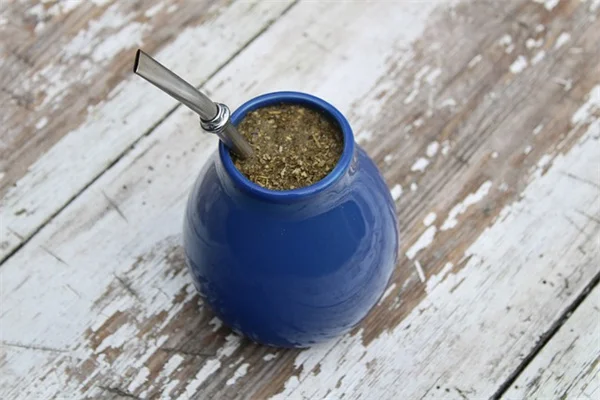Does Bug Spray Expire? Discover the Truth and Extend Its Lifespan!
Does bug spray expire? The answer is a resounding yes! Just like any other product, bug spray has a shelf life, typically ranging from 2 to 5 years. However, this expiration date is not a hard and fast rule; it’s more of a guideline from the manufacturer. The real question is, how you store and use your bug spray can significantly affect its longevity. I've had my share of experiences with old bug spray that left me feeling like a walking buffet for mosquitoes! If you're curious about how to keep those pesky insects at bay while ensuring your spray is effective, you've come to the right place. Let's dive into everything you need to know about bug spray expiration and how to make the most of your insect repellent!
E.g. :Does Vanilla Flavoring Expire? Discover the Truth About Shelf Life and Storage Tips!
Bug Spray Expiration: The Ultimate Guide to Keeping Bugs at Bay 🦟
1. The Truth About Bug Spray Shelf Life
Ever found an old can of bug spray in your camping gear and wondered - "Does this stuff actually expire?" Let me tell you, it absolutely does! Most bug sprays have a shelf life of 2-5 years, but here's the kicker - that expiration date is just the manufacturer's guarantee. The real lifespan depends on how you treat it.
Pro tip: That expiration date you see? It's like the "best by" date on milk - the product might still work afterward, but don't expect miracles. I once used a can that was 3 years past its date during a mosquito-infested camping trip. Let's just say I became the main course at the mosquito buffet that night!
2. What Makes Bug Spray Go Bad?
Think of your bug spray like a fine wine - storage conditions make all the difference. Here's what can ruin your bug spray's effectiveness:
| Storage Mistake | What Happens | How to Fix It |
|---|---|---|
| Leaving it in a hot car | Ingredients break down faster | Store in climate-controlled areas |
| Exposing to sunlight | Chemical degradation | Keep in dark cabinet |
| Humid environments | Can cause separation | Use silica gel packets |
Fun fact: DEET-based sprays actually last longer than natural alternatives. That organic citronella spray might smell nice, but it won't stand the test of time like good old DEET.
 Photos provided by pixabay
Photos provided by pixabay
3. Spotting an Expired Bug Spray 🔍
Your nose knows! Here are the telltale signs your bug spray has kicked the bucket:
1. The smell test: If it smells more like a chemistry experiment than bug spray, toss it. I learned this the hard way when my "fresh" spray smelled like rotten eggs.
2. Visual inspection: Separation is bad news. If you see layers forming like a bad cocktail, it's time to say goodbye.
3. Performance issues: Getting bitten more than usual? Your spray might be slacking on the job.
4. Storage Hacks for Maximum Longevity
Want your bug spray to last? Follow these simple tricks:
- Temperature control: Keep it between 50-80°F. Your garage in summer? Bad idea. Your basement? Perfect!
- Rotation system: Use the "first in, first out" method like grocery stores do. Mark purchase dates with a sharpie.
Here's a question: Did you know shaking your spray before each use can extend its life? It helps redistribute settled ingredients!
5. When to Definitely Replace Your Spray
Some situations demand a fresh can, no questions asked:
1. After extreme temperature exposure (left in car during heat wave? Toss it!)
2. If the nozzle starts acting up - inconsistent spray means inconsistent protection
3. Before big trips - don't risk ineffective spray when you're miles from civilization
Remember that time I used questionable spray on a hiking trip? The mosquitoes treated me like an all-you-can-eat buffet. Lesson learned!
 Photos provided by pixabay
Photos provided by pixabay
3. Spotting an Expired Bug Spray 🔍
Got expired spray? Don't just chuck it in the trash! Here's how to dispose of it properly:
- Check local hazardous waste guidelines (most communities have special collection days)
- Never pour down drains - those chemicals can mess with water systems
- Empty cans can usually be recycled with other metals
Pro tip: Some outdoor stores take back partial cans for proper disposal. Call ahead to check!
7. Buying Smart for Longer Lasting Protection
Want to avoid the expiration headache? Try these purchasing strategies:
Size matters: Buying industrial-sized spray might seem economical, but will you use it all before it expires?
Consider the season: Stock up in spring so you're using the freshest spray during peak bug season
Check dates: Retailers sometimes sell older stock - always look for the newest expiration date
8. Alternative Solutions When Spray Fails
Caught without effective spray? Try these emergency fixes:
- Rubbing alcohol (temporary relief, but don't rely on it)
- Vanilla extract (mosquitoes hate the smell)
- Fans! Mosquitoes are weak fliers - create your own breeze
Final thought: An ounce of prevention is worth a pound of cure. Regular spray checks can save you from becoming bug bait!
 Photos provided by pixabay
Photos provided by pixabay
3. Spotting an Expired Bug Spray 🔍
Ever wonder why spray goes bad? Here's the breakdown:
Chemical bonds break down over time, especially with temperature fluctuations. DEET molecules, for instance, slowly lose their effectiveness as they oxidize.
Did you know? The FDA requires expiration testing on all insect repellents. Those dates aren't just guesses!
10. Creating Your Bug Spray Maintenance Routine
Make spray checks part of your seasonal home maintenance:
1. Spring cleaning? Check your spray stash
2. Before summer trips? Inventory time
3. Post-camping? Assess what needs replacing
Set calendar reminders - your future itch-free self will thank you!
As we wrap up our exploration into the world of bug spray expiration, it's clear that understanding does bug spray expire is crucial for keeping those pesky insects at bay. We've learned that while most bug sprays have a shelf life of 2-5 years, proper storage and regular checks can significantly extend their effectiveness. Remember, just because a can has an expiration date doesn't mean it's time to toss it right away; a quick smell and visual inspection can save the day! 🌟
With my years of experience, I can confidently say that taking a few simple steps—like storing your spray in a cool, dark place and keeping track of purchase dates—can make a world of difference. So, as you prepare for your next outdoor adventure, don’t forget to check your spray. After all, no one wants to be the main course at a bug buffet! 🏕️
I'd love to hear how you store your bug spray or any tips you've picked up along the way, so feel free to drop a comment below! And if you're looking for more ways to enhance your outdoor experience, consider checking out our other articles on pest control strategies. Let's keep those bugs away together! 🐜✨
E.g. :Does Bug Spray Expire? Experts Weigh In
FAQs
1. How long does bug spray really last?
Bug spray typically has a shelf life of 2-5 years, depending on how it's stored. To maximize its lifespan, keep it in a cool, dark place, away from heat and moisture. I learned the hard way that using expired spray can lead to some unpleasant experiences, especially when those pesky mosquitoes are out in full force!
2. What signs indicate my bug spray is expired?
There are a few telltale signs that your bug spray has gone bad. First, give it the smell test; if it smells off or like rotten eggs, it’s time to toss it. Also, look for separation in the liquid; if it resembles a bad cocktail, don’t use it! Lastly, if you’re getting bitten more often, your spray may not be effective anymore. Trust me, you don't want to find out the hard way!
3. Can I still use bug spray after the expiration date?
While bug spray may still work after its expiration date, it's not guaranteed. Think of it like using old milk; it might be okay, but you could end up with unexpected results. To ensure maximum protection against bugs, I recommend replacing old spray, especially before big outdoor trips. It's better to be safe than sorry when it comes to those annoying insects!
4. How should I store bug spray for optimal effectiveness?
For your bug spray to remain effective, store it in a temperature-controlled environment, ideally between 50-80°F. Avoid leaving it in hot cars or direct sunlight, as these conditions can degrade the ingredients. I’ve found that keeping it in a dark cabinet works wonders! Plus, regularly checking your spray can help you stay prepared for any bug-infested outings.
5. What should I do with expired bug spray?
Don't just toss expired bug spray in the trash! It's important to dispose of it properly. Check your local hazardous waste guidelines for special collection days, and never pour it down the drain. I’ve learned that some outdoor stores even take back partial cans for proper disposal, so it's worth calling ahead to find out your options. Let's keep our environment safe together!






